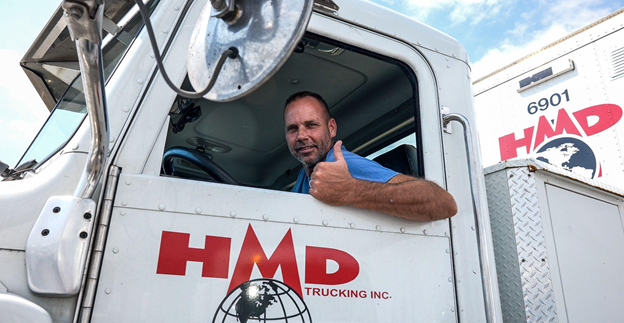In the dynamic world of trucking and logistics, the partnerships you forge can significantly determine the trajectory of your business. Among these, selecting the right broker for truckers stands out as a critical decision that can impact your access to lucrative loads, operational efficiency, and overall growth. This article delves into the essentials of choosing a freight brokerage partner, guiding you through the process to ensure a fruitful collaboration.
Understanding Freight Brokerage
At its core, a freight brokerage acts as an intermediary between shipping companies like HMD (shippers) and individuals or companies that transport goods (carriers). By facilitating the smooth transition of goods from point A to B, freight brokers play a pivotal role in the logistics chain, offering services that range from load matching to handling the paperwork associated with shipments.
Benefits of Working with a Freight Broker
Partnering with a freight brokerage can unlock numerous advantages for your trucking business. Notably, it provides access to a broader range of shipping opportunities, allowing you to fill your schedule and optimize your routes more efficiently. Moreover, freight brokers can alleviate the administrative burden of dealing with multiple shippers, negotiating rates, and ensuring compliance with shipping regulations, enabling you to focus on your core operations.
Key Factors to Consider When Choosing a Freight Broker
Licensing and Compliance
Confirm that the broker has the necessary licenses and is compliant with the Federal Motor Carrier Safety Administration (FMCSA) regulations. A legitimate broker should possess a Federal Property Broker License.
Experience and Reputation
The broker’s experience in the industry and reputation among carriers and shippers can be indicative of their reliability and quality of service. Look for reviews, testimonials, and feedback from other trucking companies.
Financial Stability
Ensure the broker has a strong financial foundation to guarantee timely and accurate payments. Checking their credit score through industry-specific credit reporting agencies can provide insights into their financial health.
Technology and Tools
Evaluate the technological capabilities of the broker, including their use of transportation management systems (TMS), load boards, and tracking tools. These technologies can enhance the efficiency of load matching, tracking, and communication.
Carrier Support and Communication
A responsive and supportive freight broker can significantly ease the operational challenges. Assess their communication channels and support services to ensure they meet your expectations.
Insurance and Liability
Understanding the broker’s insurance coverage and liability in case of cargo damage or loss is crucial. Verify that they have adequate insurance policies in place to protect your interests.
How to Vet Potential Freight Brokers
Vetting potential freight brokers involves a thorough due diligence process:
- Use industry databases and the FMCSA website to verify licenses and compliance history.
- Request references from other trucking companies or shippers who have worked with the broker.
- Check their financial stability through credit reports and industry references.
Negotiating Terms with a Freight Broker
When negotiating with a freight broker, clear communication about rates, payment terms, and expectations is key. Discuss and agree upon the commission rates, payment schedules, and any other contractual obligations. It’s also wise to have a clear agreement on how disputes will be resolved.
Building a Strong Partnership
A successful partnership with a freight broker is built on mutual respect, communication, and collaboration. Establish clear lines of communication, set realistic expectations, and engage in regular reviews of the partnership to ensure it continues to meet your business needs.
Conclusion
Choosing the right freight brokerage partner is a strategic decision that can enhance the efficiency and profitability of your trucking business. By considering the factors outlined above and conducting thorough vetting, you can forge a partnership that supports your business goals and contributes to your success in the competitive world of logistics.
As you embark on this journey, remember that the right partnership can open doors to new opportunities and pave the way for mutual growth and success.




